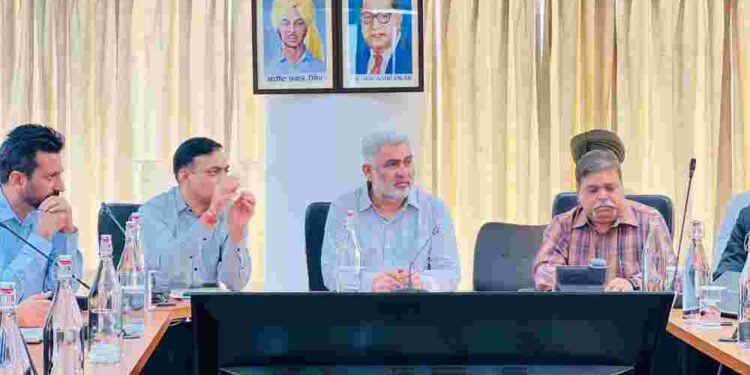· Project proposed for promoting Agro forestry and Biodiversity conservation with active assistance of Japan International Co-operation Agency (JICA)
Chandigarh, November 5:
The Punjab Government led by the Chief Minister Bhagwant Singh Mann has given priority to ensure a clean environment and increasing the forest cover. Hence, the State Government has set a target to increase this cover to 7.5% by 2030. To achieve this goal, the state government is actively working with the Japan International Cooperation Agency (JICA) to bring an important project to Punjab.
As part of this initiative, Forest Minister Shri Lal chand Kataruchak, along with officials from the Forest Department and JICA, conducted a review meeting to discuss and strategize the implementation of the project.
Increasing the area under trees through agro forestry in the state and conserving and enhancing biodiversity is a major challenge. To solve these challenges, the Forest Department has approached the Japan International Co-operation Agency (JICA). With the help of Japan International Co-operation Agency (JICA) a project for promoting Agro forestry and Biodiversity conservation in the State is proposed.
The total cost of this project will be Rs. 792.88 crore. Some of the important benefits of the project would be to increase the area under tree cover through agro forestry in the State, Conserve groundwater, increase income of farmers and prevent air pollution caused by straw burning, Integrated Watershed Management in Shiwalik Region.
For this purpose, agriculture and animal husbandry will be developed for the income of the people along with the improvement in the conservation of the environment and forests. Besides this, the focus would also be on Promoting Ecotourism- So that the local economy can be boosted along with Biodiversity Conservation and Wetland Improvement in the State.
After the approval of State Government, the Government of India, MoEF&CC, JICA and Forest Department, Punjab will jointly prepare the DPR and finalize the project. The project will be implemented for a period of five years from FY 2025-26.








